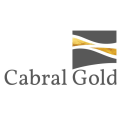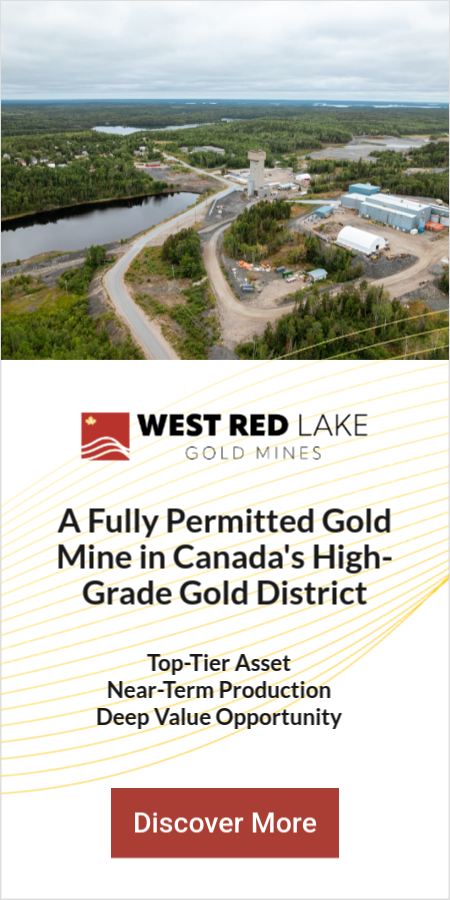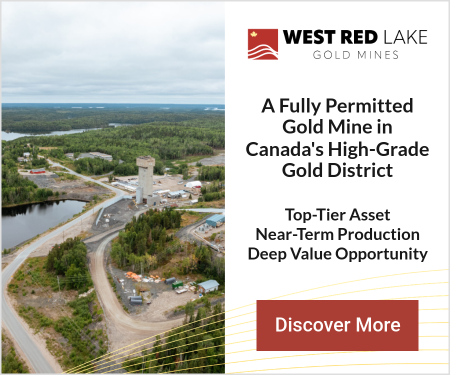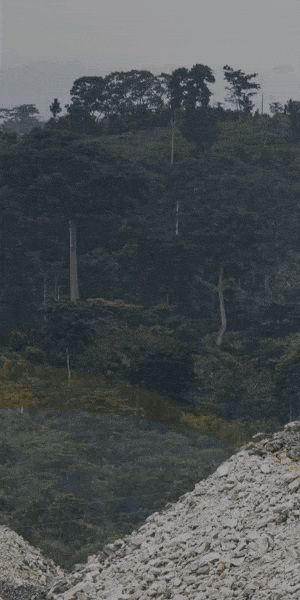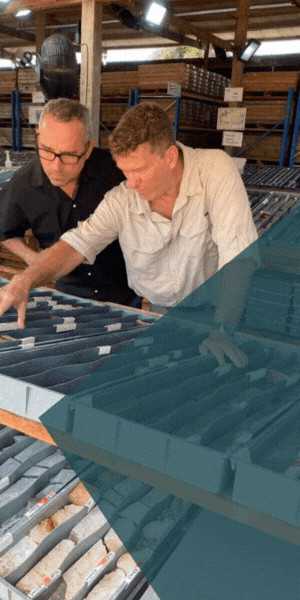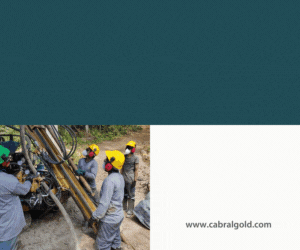Meet the Team: Ruari McKnight, Country Manager, Cabral Gold
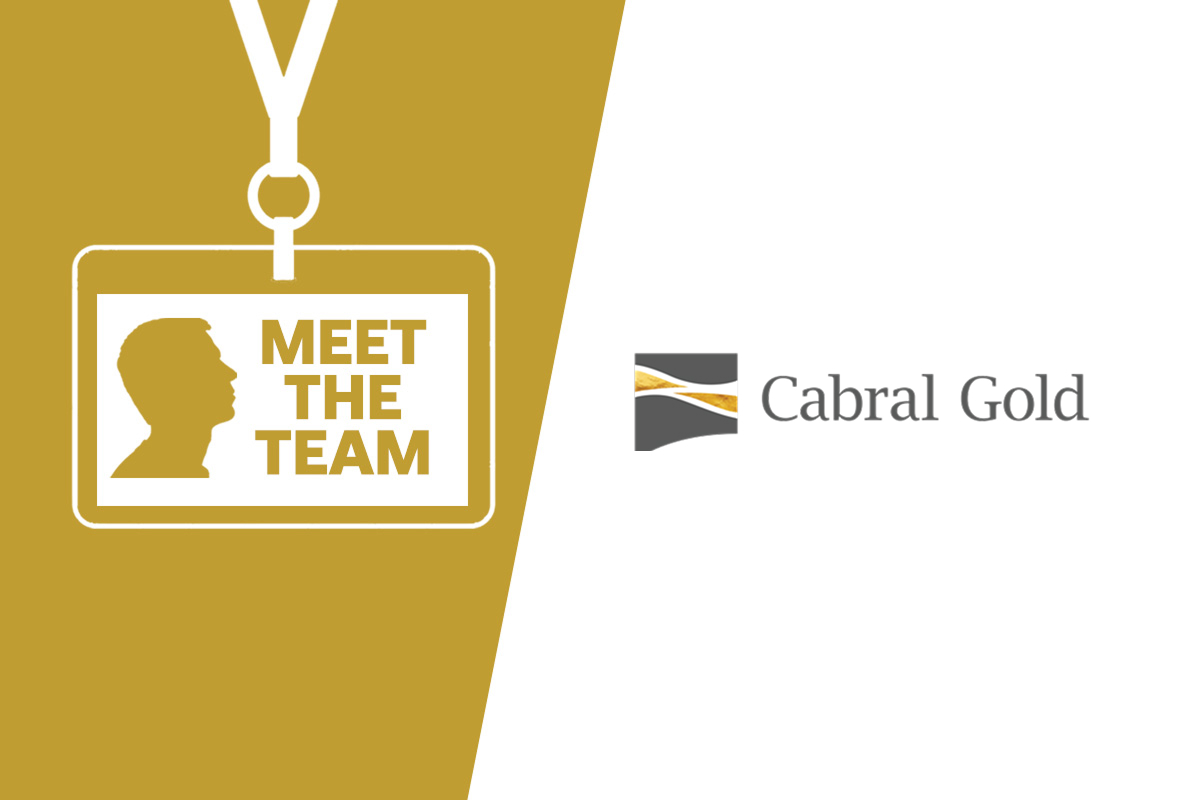
In mining, success in challenging jurisdictions requires more than geological expertise—it demands deep regional knowledge, cultural sensitivity, and the ability to navigate complex stakeholder relationships. For investors evaluating projects in frontier regions, understanding how management builds trust and secures social license can be as important as understanding the resource itself. This profile examines Ruari McKnight's approach to developing Cabral Gold's Cuiú Cuiú project through the lens of what separates successful operators from unsuccessful ones in the Brazilian Amazon.
Regional Experience & Operational Foundation
Ruari McKnight brings over two decades of Brazilian mining experience to his role as Country Manager for Cabral Gold (Magellan Minerals). His involvement in the Tapajós region began in 2003 as one of the founders of Serabi Mining (now Serabi Gold), where he helped establish the Palito mine, the first industrial mining operation in a region lacking basic logistics infrastructure.
"The lessons you learned from putting in place the first industrial mine in a region which was very much lacking in logistics, it's a very steep learning curve," Ruari reflects.
His experience spans the complete project lifecycle, from exploration through commercial production, which he achieved at Serabi before departing in 2008.
Following Serabi, Ruari founded Dourave Mining, which was acquired by Eurasia Mining four to five years later. He joined Cabral in 2017 with a specific mandate: rebuild infrastructure for a company that "had been basically in hiatus for about three or four years." This involved reconstructing the team, renewing all licensing, renegotiating ground agreements with stakeholders, and positioning the project for its current advanced stage.
His accumulated experience provides practical understanding of what works - and what doesn't - when developing mines in the Amazon basin. This foundation proves particularly valuable as Cabral advances toward trial mining operations at Cuiú Cuiú.
Leveraging Local Knowledge
Ruari's operational philosophy centers on utilizing regional expertise rather than imposing external solutions.
"The most obvious lesson, I think, is to lean on the wealth of knowledge of the local service providers and the local communities," he explains, noting that locals have spent years adapting to challenging conditions that can initially appear insurmountable.
This approach extends across technical, social, and legal dimensions. "What seems to be a challenge which can't be beaten, can be," Ruari observes, emphasizing the importance of bringing in people with boots-on-the-ground knowledge to work through the complex framework of licensing projects in Brazil.
The practical benefits of this strategy include faster problem-solving, better community relationships, and more realistic project planning that accounts for local conditions rather than theoretical assumptions. For a project located in a remote region historically accessed only by plane until 2013-2014, this local knowledge becomes essential for operational success.
Near-Term Development Milestones
Cabral has achieved significant progress positioning Cuiú Cuiú for development.
"2025 has been a pivotal year in terms of the development of the project, both on the technical side," Ruari notes, highlighting the completion of two Pre-Feasibility Studies - the second significantly improving the project's financial parameters.
Parallel permitting achievements include critical infrastructure developments. The main access road to Cuiú Cuiú became a municipal public road in late 2024, with Cabral partnering with local government on recovery and upgrade work currently underway. "Obviously a very key factor in terms of any project and the logistics is the road access," Ruari emphasizes.
The company benefits from proximity to G Mining's Tocantinzinho gold project, located 61 kilometers away. "They've brought in an all-weather road, they've brought in energy, and obviously service providers as well have come in together with them," providing infrastructure that dramatically reduces development costs and risks compared to the pre-2013 environment.
On the permitting side, Cabral has upgraded both trial mining licenses, one covering the Western Central tenement at 200,000 tonnes per year capacity, and another on the Eastern Moreira Gomes and Machichie tenements at 300,000 tonnes per year capacity. The company has also secured its installation license renewal, updated suppression of vegetation licenses, and obtained fauna rescue permits.
"We're now ready to go. Essentially," Ruari states, noting that vegetation suppression on the Cuiú plateau, where the processing plant will be located, begins within 10 days, followed by earthworks targeting year-end completion.
A particularly significant milestone was receiving consent from ICMBIO, the federal environmental agency overseeing the Area of Environmental Protection where the project lies.
"That's a key item to have moving forward, both for the trial mining licenses and for our full mining license process," Ruari explains.
Multi-Deposit Coordination Strategy
Cabral's exploration and permitting strategy benefits from having contiguous tenements covering approximately 17,000 hectares across the two main properties, plus another 18,000 hectares in surrounding areas.
"One of the benefits of having the two main tenements, they're actually contiguous. So you gain benefits whereby some of the licensing protocols can then actually be unified into one licensing process," Ruari notes.
The company operates a centralized, well-equipped exploration camp with capacity for up to 150 people, company-owned drill rigs and auger rigs, and capability to support third-party contractors with heavy equipment logistics.
"We have an extremely experienced exploration team, many of which have had 10 or 15 years experience working within the district, which makes a huge difference," Ruari explains.
This infrastructure enables simultaneous development of multiple targets separated by seven to eight kilometers or more, providing operational efficiency while maintaining centralized management and quality control. The long-tenured exploration team's district knowledge accelerates target identification and reduces exploration risk.
Navigating Brazil's Regulatory Framework
Brazil's permitting environment presents challenges that require both patience and strategic thinking. "As most people are aware, licensing and permitting within South America and in Brazil in particular is a slow affair. It's very bureaucratic," Ruari acknowledges. However, he emphasizes that clear guidelines exist for what companies need to do.
Cabral has employed a parallel permitting strategy to accelerate development timelines. "There are two different ways you can actually license a project in parallel, which is what we've done," Ruari explains. The company secured trial mining licenses (Guia de Utilização) that permit smaller-scale production with defined limitations, while simultaneously advancing the full mining license application.
The full mining license process requires a two-year background environmental study, which Cabral has completed.
"We've just passed through the analysis of that field visits and we've just had our two public audiences," Ruari reports, noting both were very positive.
These audiences, held at Cuiú Cuiú and Itaituba (the municipal government seat), represent the final social license step.
"We're close to 85, 95% of the way through the licensing process on the full mining license and we have a fully licensed trial mining license," Ruari states, explaining how this dual-track approach accelerates the path to full production.
Building Stakeholder Trust
Ruari's approach to stakeholder relations emphasizes physical presence and multi-level engagement.
"The key is you need to be available, boots on the ground. You need to be able to sit down with stakeholders on the ground, garimpeiros, community members, leaders," he explains.
This ground-level engagement must be complemented by higher-level relationship building.
"You also need to have the ability to step up through the hierarchy and work with local government, both local government and environmental agencies on a municipal level," while maintaining proactive engagement with state and federal agencies.
Transparency and continuous communication form the foundation of this approach. "Communication, continuous communication with all the entities so they're aware of where you're moving, what your targets are," proves essential for navigating unexpected challenges. Ruari notes that when problems arise, agencies "are actually quite often they're very willing to help you try and find a way through these problems" when long-term transparent relationships exist.
This multi-tiered engagement capability, from street-level conversations to federal agency negotiations, enables effective navigation of Brazil's complex regulatory environment while building the trust necessary for project advancement.
ESG Integration & Community Partnership Model
Cabral's approach to community relations centers on a unique social model developed since 2006 that addresses the complex challenge of transitioning from artisanal mining (garimpeiro activity) to industrial operations.
"Since before my time, Magellan was very proactive. Now called Cabral, the company here in Brazil, Magellan, since 2006 has developed an extremely new and dynamic way of dealing and creating a social model, on how to deal with a historically active garimpeiro community, such as Cuiú Cuiú," Ruari explains.
This model has proven robust enough that government entities want to replicate it.
"That model has been basically taken by the hand by the state and the local governments. They want to use this model as a model to apply to other communities in similar situations to make a peaceful transition from artisan mining to industrial mining," Ruari notes.
The practical implementation involves substantial investment in community infrastructure.
"We've already spent close to five million reales, so that's almost a million Canadian dollars in helping the community in terms of bringing in infrastructure, bringing in communication, water, schools, health, all the pillars of society that we expect elsewhere which don't exist in a lot of these communities," Ruari details.
This long-term investment directly supports permitting success. "The fact that we had excellent public audiences is fruit of the fact that Magellan has been working together and coexisting with the local Cuiú Cuiú community since 2006," with cooperation intensifying since 2017.
The model contemplates rights of both company and community members, some of whom have been present since 1958. Cabral has provided relocation options where community members can continue garimpeiro activity or pursue alternative economic activities once full mining operations commence. "It's the living with and within the community, and then that actually helps you when you move towards the licensing because you do need to have that social license at the end of the day," Ruari concludes.
Policy Environment & Regional Development
Recent regulatory changes aim to streamline Brazilian mining permitting. While Cabral's advanced permitting status means limited direct impact, Ruari recognizes these changes will benefit companies in earlier stages. The political environment has shifted toward recognizing mining's economic contributions.
"The local governments are starting to understand the importance of having industrial mining complexes within the region," Ruari observes, noting that the transition from garimpeiro activity to industrial mining brings employment, tax generation, royalties, and broader economic benefits.
The proximity to G Mining's Tocantinzinho operation has transformed regional dynamics. "I have to say, we are actually benefiting from that, having that close proximity to a large scale mining operation right at our doorstep," through improved infrastructure and expanded service provider availability.
This evolving environment creates favorable conditions for responsible operators with strong community relationships and proper permitting to advance projects that might have been impractical or prohibitively expensive in earlier periods.
Risk Management & Opportunity Assessment
Ruari identifies several risk categories while maintaining perspective on how challenges create opportunities. Weather represents an ongoing operational consideration in jungle environments, though experience provides effective mitigation strategies.
"Social risks are always imminent in a region such as the Tapajós," Ruari acknowledges, but notes that Cabral's special social model has anticipated many potential problems. The accommodation of local community needs and provision of alternative economic opportunities reduces this risk substantially.
Political risk exists throughout South America, but Ruari views Brazil as relatively stable.
"The geopolitical risk isn't, it's not like other countries. It's fairly stable. It's a safe place to invest," he assesses.
The opportunity side of the equation centers on the district's under-explored potential relative to its production history. "We're in a region which has produced in excess of 30 million ounces of gold. There's only three operating mines. There's two mines from Serabi Gold, Coringa and Palito, and now Tocantinzinho," Ruari notes.
This limited development creates significant opportunity for companies with appropriate capabilities.
"In a similar district in Canada or Australia, you'd have 50 or 60 or 70 mines operating in this region. Therein lies the opportunity. The challenges also provide opportunities," Ruari explains. His perspective: "If it was easy, there wouldn't be any opportunities."
Leadership Philosophy
Ruari's approach emphasizes availability, transparency, and adaptability across all stakeholder levels.
"My personal philosophy is transparency, communication, and being available from all tiers, from boots on the ground right through to the federal level. You need to have that ability to navigate all the various tiers of the Brazilian permitting process," he states.
Success requires both humility and flexibility. "The key is to be able to walk down the street in a town where you have an operation and be welcomed means that is a sign of success," Ruari reflects, emphasizing that community acceptance represents genuine achievement.
This philosophy also demands creative problem-solving. "You also need to have flexibility and the capacity to find dynamic solutions to unusual situations," Ruari notes, recognizing that standard approaches often prove insufficient in complex environments like the Brazilian Amazon.
Looking Forward
Ruari McKnight's two decades of Brazilian mining experience, including founding operations in the Tapajós region, provides Cabral Gold with capabilities that directly address the challenges of developing projects in the Amazon. His track record of taking Serabi's Palito mine through commercial production demonstrates ability to execute in this specific environment.
The combination of Cabral's advanced permitting position, proven community partnership model, strategic infrastructure advantages from nearby operations, and experienced local team positions the company to advance toward trial mining operations with reduced execution risk compared to typical greenfield developments.
For investors evaluating Cabral Gold, Ruari's deep regional knowledge, demonstrated ability to navigate complex stakeholder relationships, and philosophy of community partnership represent valuable management capabilities for advancing mining projects in Brazil's challenging but opportunity-rich Tapajós region. His emphasis on transparency, multi-level engagement, and finding dynamic solutions to unusual situations reflects understanding that success in this environment requires both technical competence and sophisticated stakeholder management.
Analyst's Notes




Subscribe to Our Channel
Stay Informed










